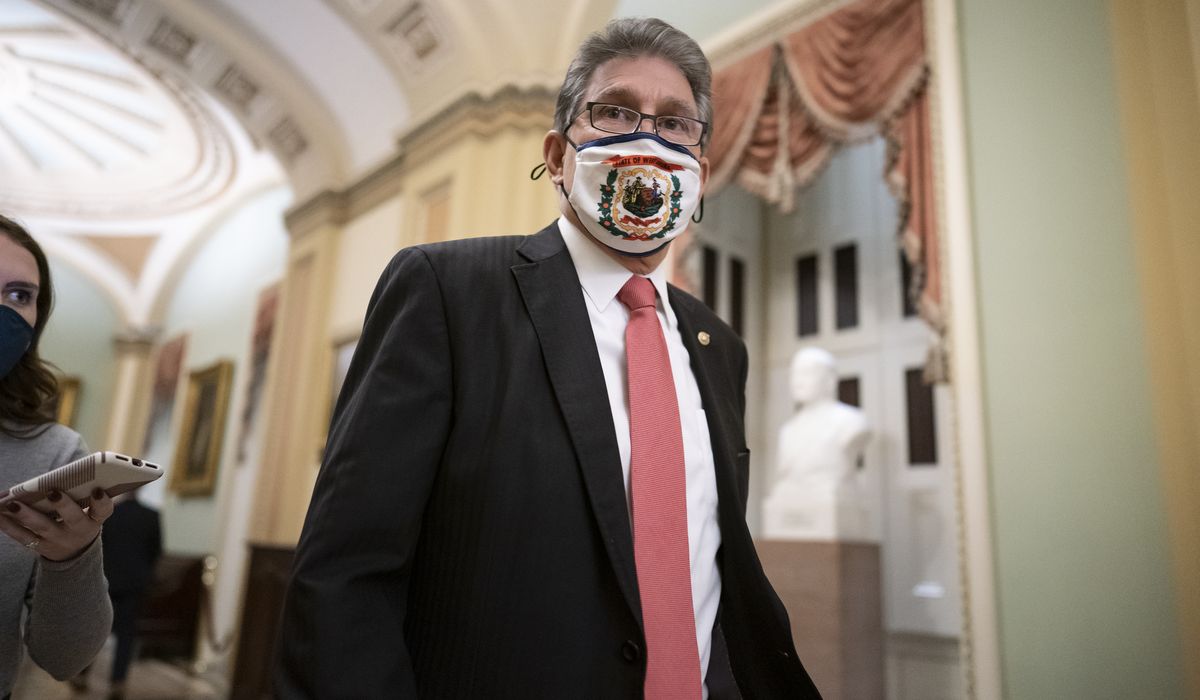Sen. Joe Manchin of West Virginia said Monday he would support increasing the federal minimum wage to $11 per hour as part of President Biden’s $1.9 trillion coronavirus relief package — if Senate rules allow it.
“$11 is the right place to be,” Mr. Manchin said. “I’d amend it to 11, if it’s germane.”
House Democrats included an increase in the hourly federal minimum wage from $7.25 to $15 in the relief package they’re trying to pass this week.
Mr. Biden supports increasing the wage to $15 per hour but has said he doesn’t think it will survive Senate rules.
Mr. Manchin, one of the chamber’s more moderate Democrats, is opposed.
“Throwing 15 out there right now just makes it very difficult in rural America,” Mr. Manchin said.
Mr. Manchin says there’s no way he would support anything that violates the “Byrd Rule,” named after the late former Sen. Robert Byrd of West Virginia.
The rule says extraneous issues are supposed to be left out of bills passed under the fast-track process Democrats are using to thwart a possible filibuster in the 50-50 Senate.
Vice President Kamala Harris’s tiebreaking vote gives Democrats effective control of the chamber, but the party can’t afford to lose a single member assuming Republicans are unified in opposition.
Republicans say the wage hike to $15 per hour isn’t directly tied to COVID-19 relief and that it would be too disruptive for small businesses still hurting from the pandemic.
Senate Budget Committee Chairman Bernard Sanders of Vermont said he’s confident that a minimum wage increase to $15 per hour will pass muster under Senate rules.
A ruling from the Senate parliamentarian could come sometime this week.
Liberal Democrats have argued that increasing the minimum wage to $15 per hour is vital for the broader economy. It’s unclear how they would vote if presented with a take-it-or-leave-it $11-per-hour proposition.
The Congressional Budget Office reported that Mr. Sanders’ plan to increase the wage to $15 per hour by 2025 would kill 1.4 million jobs, though it would also lift about 900,000 people out of poverty.



















